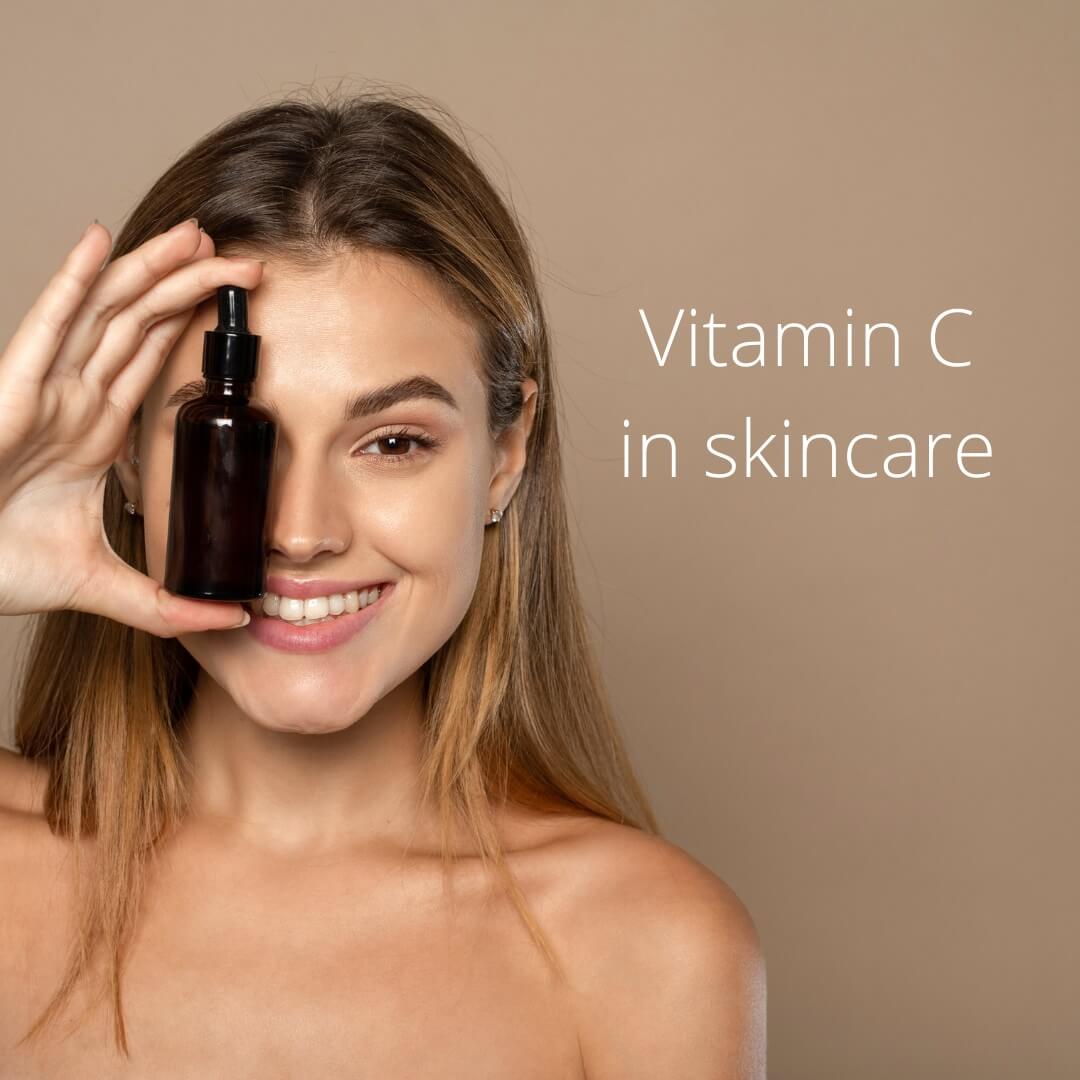Ingredient Spotlight: Vitamin C
Posted by Naturally Safe Cosmetics on 11th May 2022
(3 minute read)
An increasingly popular ingredient in skincare products is Vitamin C and, while we all know the benefits of consuming Vitamin C in our daily diet, there is growing evidence that topical Vitamin C can have beneficial effects for our skin.
What is Vitamin C?
Vitamin C is an antioxidant and essential nutrient that has many functions, including collagen production, reduction of oxidative stress and wound healing. When it comes to our diet, good sources of Vitamin C include fresh fruits and vegetables. Some people take Vitamin C supplements if their diet is deficient in Vitamin C foods.
Topical Vitamin C
When it comes to topical Vitamin C, there is clinical evidence to support the benefits of Vitamin C in skincare formulations. In particular, topical Vitamin C can help:
- Slow the premature signs of ageing, including wrinkles and dark spots
- Prevent sun damage with antioxidants to fight free radicals (there’s no SPF in it but it can reduce the impact of the sun when it does penetrate the skin)
- Brighten the skin by lightening the appearance of dark circles under eyes, areas of hyperpigmentation and generally evening out skin tone
- Skin healing including acne and scars
- Promote collagen production which slows as we age

Vitamin C Serums are becoming increasingly popular. (Image credit: Canva)
Types of Vitamin C
Different variations of Vitamin C can be found in skincare. Some of the names you might see on a label include:
- L-ascorbic Acid (naturally occurring and considered to be the purest form of Vitamin C, also known simply as Ascorbic Acid – the “L” refers to a specific structure of Vitamin C)
- Ascorbyl Palmitate (also known as Vitamin C Palmitate)
- Ascorbyl Tetraisopalmitate (a tetraester of Ascorbic Acid – a high grade ‘stable form’ of Vitamin C)
- Magnesium Ascorbyl Phosphate (a Vitamin C based antioxidant)
- Sodium Ascorbate (a sodium salt of Ascorbic Acid)
- Calcium Ascorbate (a calcium salt of Ascorbic Acid)
Different skincare brands use different forms of Vitamin C for their own reasons. While L-ascorbic Acid is considered to be the purest and most effective form, it is also the most unstable form, which can be a problem when it’s used in certain formulations. Vitamin C needs to be protected from air and light.
Which skincare products contain Vitamin C?
Vitamin C can be found in all types of skincare products, including cleansers, serums, oils and moisturisers. Instead of actual Vitamin C, some products contain ingredients that are rich in Vitamin C, for example, Kakadu Plum – a small fruit found in the Eucalypt open woodlands across Northern Australia. The Kakadu Plum has the highest recorded natural amount of Vitamin C of any food in the world!
Is skincare with Vitamin C suitable for all skin types?
Generally speaking, yes, but you should check the packaging, especially if you have sensitive skin. Regardless of the product (and whether it contains Vitamin C or not), it’s a good idea for everyone to do a patch test when using a new product for the first time. Also take care if you are already using other products with acidic ingredients, e.g. Alpha Hydroxy Acids.
Our Vitamin C skincare picks
- Clemence Organics Ultimate Biome Spritz – high in Vitamin C, contains beneficial probiotics, hydrates the skin, protects against environmental pollutants and helps with pigmentation reduction and collagen synthesis – great for use as a toner and hydrating mist spray
- LAMAV Daily Vitamin C Serum – use after cleansing and before moisturising to fight discolouration, strengthen collagen and prevent the visible signs of premature ageing
- Botani Olive Skin Serum – provides a 24hr hydration boost, also helps reduce the appearance of age spots, pigmentation and scars
- Edible Beauty No.3 Exotic Goddess Ageless Serum – helps fight oxidative damage, supports collagen production and visibly brightens skin
- LAMAV Anti Dark-Circle Eye Gel – hydrates and helps brighten the delicate skin around the eyes
- LAMAV Rumex Day Cream – helps reduce discolouration, hydrates and diminishes the visible signs of ageing
Sources: medicalnewstoday.com; healthline.com; webmd.com; btyaly.com; ewg.org; thedermreview.com
Disclaimer: Naturally Safe Cosmetics and the author are not health professionals. Any information or advice in this article is of a general nature only and not intended to diagnose, treat, cure or prevent any disease. For medical advice regarding your own personal circumstances, we recommend you contact your GP or other healthcare professional.


